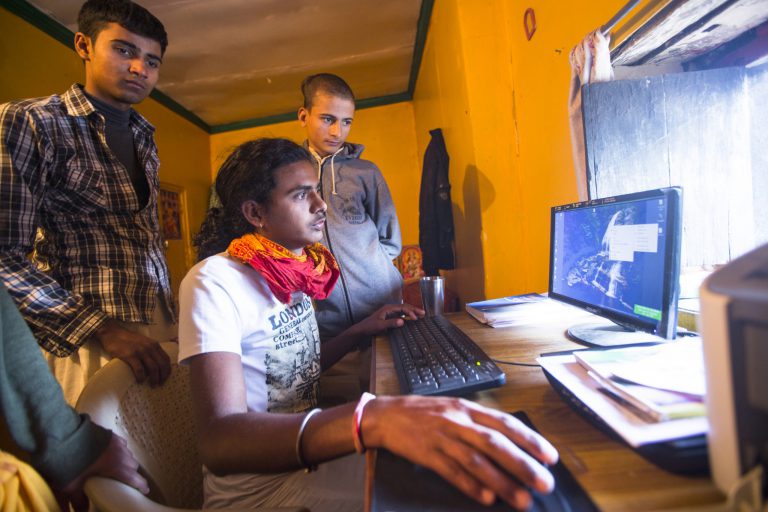
An online, tuition-free University says it is drawing a growing number of students from the United States, and more than a quarter of them are immigrants who left their home countries in search of a better life.
Colombian-born Nathaly Ordonez had near enough abandoned her dream of attending college after her family’s visas expired, leaving her saddled with immigration fears after graduating from her New Jersey high school.
After obtaining a job as a waitress, Ordonez still didn’t earn enough to cover the cost of school, nor could she get enough time off to attend her classes. When she heard about the University of the People, an online university that does not charge fees, Ordonez was sceptical but decided to give it a try.
Helping the world to become better educated, one student at a time. @UoPeople
— Michelle (@meprice) November 15, 2015
Now, she’s studying for her Bachelor’s degree in Business and one day hopes to forge a career in advertising.
“When I got in, I was so excited, because I was able to go to college,” said Ordonez, who is now 23. “I am going to do what other people do.”
The University, founded in 2009, hopes to extend the reach of higher education globally, charging a $50 application fee and a $100 final exam fee for each individual course, making the cost of a full Bachelor’s degree around $4,000. However, the University will waive fees for students who can’t pay, and reportedly did just that in 2010, offering scholarships to Haitians after an earthquake devastated the island, as well as Syrian refugees fleeing their war-torn homes.
Tuition-free University of the People seeing big boost in immigrant students https://t.co/8jJmcLJ3Cd via @educationdive #UoPeople #openEd
— Sarah Vanunu (@svanunu) November 17, 2015
Since receiving accreditation last year, the University of the People has seen enrolment grow five-fold to 2,500 students. While the majority of students originate from overseas, the number of domestic students has swelled from just 72 in 2013 to 950 this year. According to the school, a recent survey indicated that approximately a quarter of them are immigrants who have entered the country illegally.
“Everyone deserves an education,” said Shai Reshef, the university’s Israeli-born founder who currently lives in New York.
Reshef previously ran an online university in Europe, but started the University of the People as part of a global vision. While the school was never focused on immigrants living in the US, the low cost and flexible schedule have proved a draw for aspiring students all over the world.
University of the People – where students get free degrees https://t.co/mQINTDGQz4
— Robert Misior (@probert100) November 16, 2015
Karen Soni came to the United States from Mexico as a child. She attended a private University in Texas for one semester, but had to drop out after paying nearly $6,000. Five years later, she resumed her studies with the University of the People, and works on assignments each morning before heading to her job at a marketing company and at night after taking care of her fiver-year-old son.
“It’s a little bit challenging because there is a lot of work, there is a lot of writing to do,” said Soni, 27, who lives in a Houston suburb. “One of the advantages is I can do it at my own pace. I can do it any time.”
In the US, immigrants who can’t attend college because they don’t possess the correct papers have also been enrolling. Some are not allowed to attend traditional universities due to their immigration status, and others can’t afford it as they do not qualify for financial aid.
University of the People enrollment in U.S. surges with immigrant influx #highered https://t.co/MmG69xEzQ2
— EducationDive (@EducationDive) November 16, 2015
Some have questioned the prestige of the online University programs, but the institution’s affiliations with traditional schools have helped shore up its image, said William Perez, Professor of Education at Claremont Graduate University.
Furthermore, enrolling more US immigrant students- many of whom have been vocal advocates for immigration reform, pressing the Obama administration to grant them protection from deportation- could end up strengthening the School in the long run.
“The fact that very capable, high-achieving students are pursuing these options, because they’re limited otherwise, and with that credential they may go and accomplish great things, that will certainly continue to raise not only the profile but also the viability of these online options,” said Perez.
Image via Shutterstock.







